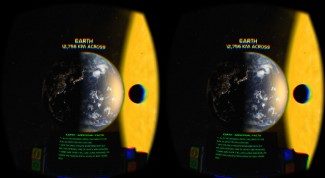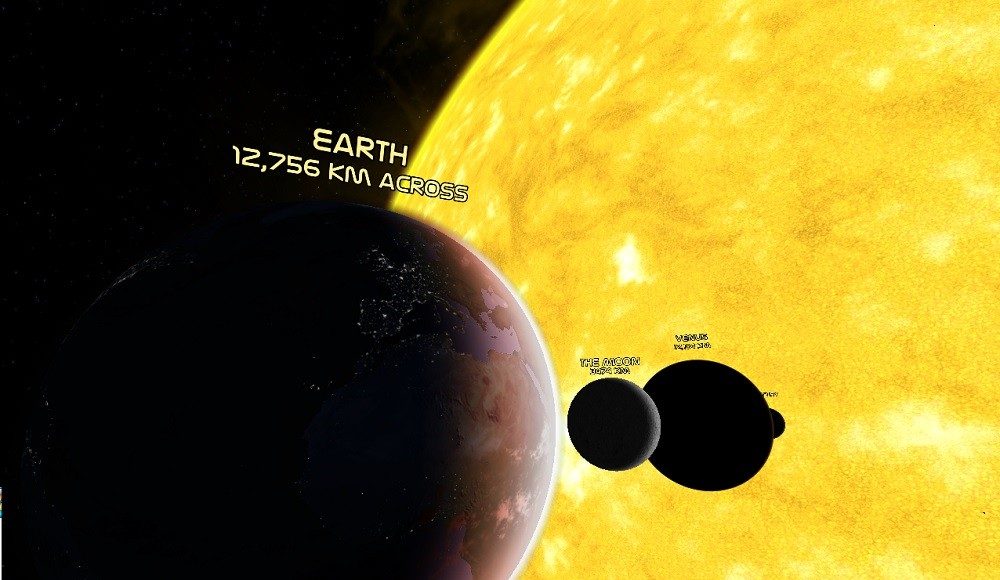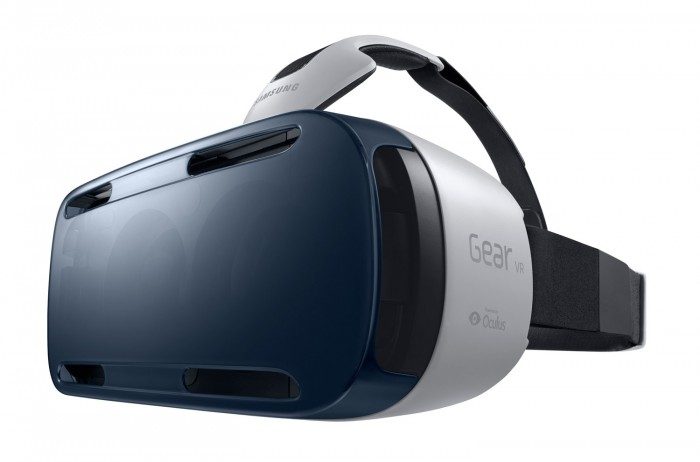Titans of Space, one of the early VR classics originally released for the Oculus Rift DK1, is now heading to the newly announced Samsung Gear VR headset.
DK1 Classic Heads to Gear VR
 It wasn’t long after the DK1 was released to developers that we started to see truly unique ways to engage the user. Titans of Space, was an interactive planetarium that saw you plunged into the blackness of space surrounded by the immense scale of the solar system. It was an instant VR favourite and demonstrated the ways in which immersive experiences are an immensely powerful way to present players with information that would be difficult to conceive by traditional methods – the sheer scale and relative size of these vast objects was so effectively conveyed.
It wasn’t long after the DK1 was released to developers that we started to see truly unique ways to engage the user. Titans of Space, was an interactive planetarium that saw you plunged into the blackness of space surrounded by the immense scale of the solar system. It was an instant VR favourite and demonstrated the ways in which immersive experiences are an immensely powerful way to present players with information that would be difficult to conceive by traditional methods – the sheer scale and relative size of these vast objects was so effectively conveyed.
Now, developer Drash has announced that the title has already been ported to Samsung’s new VR Headset ‘Gear VR’, and in a new blog post he both highlights his enthusiasm for the device and the challenges he faced porting Titans of Space to a mobile platform.
While mobile devices today are getting more powerful by leaps and bounds, I quickly learned that porting something originally made for the PC to a mobile device and still have it run at 60 FPS was not an easy task. A lot of game systems required a rewrite, which I basically was going to do anyway so this was simply great motivation to get started.
Which certainly illustrated one of my personal concerns with mobile VR, ever since I first heard the rumours of Samsung’s partnership with Oculus. It’s great to hear though that Drash was successful in his performance optimisations.
 He goes into some detail on particular technical challenges and approaches to resolve them, and ultimately fundamentally re-architected his project in order to tackle them. An approach that I suspect will need to be common place for applications developed for the resource rich gaming PCs of today.
He goes into some detail on particular technical challenges and approaches to resolve them, and ultimately fundamentally re-architected his project in order to tackle them. An approach that I suspect will need to be common place for applications developed for the resource rich gaming PCs of today.
His sign off also illustrates how long developers lucky enough to be approached to develop for the fledgling platform.
I learned a lot from the Oculus/Samsung partnership. Thanks to their combined wizardry, I have great hopes for compelling and rock-solid VR experiences on a mere mobile device. It’s been both fun and maddening to watch /r/oculus speculate on the various rumors that had been swirling around. I have zero doubt that a new mainstream household activity has just come into being: taking the GearVR over to the couch to relax in VR. Also, being able to walk over to a family member (with device in hand) and say “hey check this [entirely other world] out” is cool too. :)
So a glowing and enthusiastic summary from one of the VR community’s favourite developers. It seems that Gear VR may well be a more enticing and important product than perhaps some had originally imagined, myself included.








